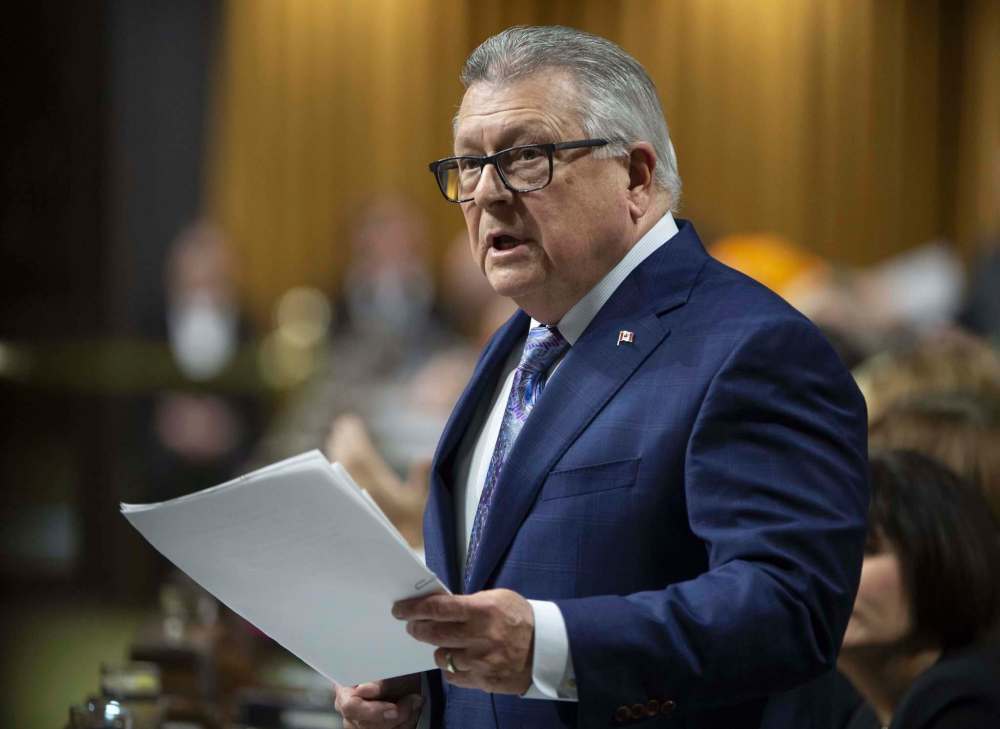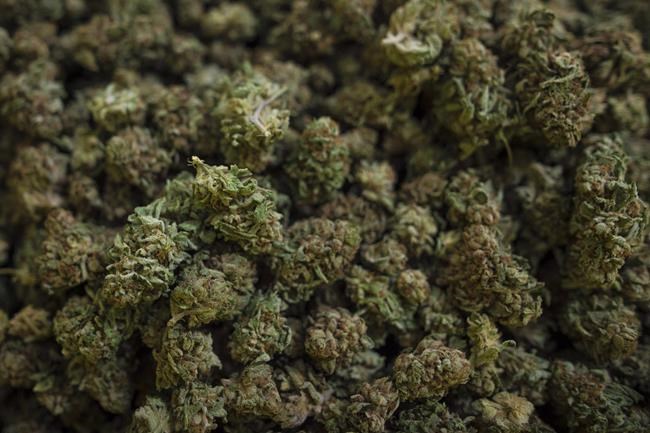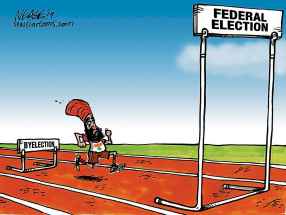Ottawa must deliver on pot-pardon pledge
Read this article for free:
or
Already have an account? Log in here »
To continue reading, please subscribe:
Monthly Digital Subscription
$0 for the first 4 weeks*
- Enjoy unlimited reading on winnipegfreepress.com
- Read the E-Edition, our digital replica newspaper
- Access News Break, our award-winning app
- Play interactive puzzles
*No charge for 4 weeks then price increases to the regular rate of $19.00 plus GST every four weeks. Offer available to new and qualified returning subscribers only. Cancel any time.
Monthly Digital Subscription
$4.75/week*
- Enjoy unlimited reading on winnipegfreepress.com
- Read the E-Edition, our digital replica newspaper
- Access News Break, our award-winning app
- Play interactive puzzles
*Billed as $19 plus GST every four weeks. Cancel any time.
To continue reading, please subscribe:
Add Free Press access to your Brandon Sun subscription for only an additional
$1 for the first 4 weeks*
*Your next subscription payment will increase by $1.00 and you will be charged $16.99 plus GST for four weeks. After four weeks, your payment will increase to $23.99 plus GST every four weeks.
Read unlimited articles for free today:
or
Already have an account? Log in here »
Hey there, time traveller!
This article was published 27/02/2019 (2482 days ago), so information in it may no longer be current.
With cannabis now as legal as beer or cigarettes, it’s easy to forget about Canada’s cannabis criminals. Perhaps that’s why the federal government needs a reminder.
Canadians who have a criminal record for possession of cannabis — a 2014 study said there were 500,000 of them — were undoubtedly optimistic last October when Public Safety Minister Ralph Goodale promised relief is coming. The initial hope was that the government would proactively clear all their criminal records for cannabis possession, but Mr. Goodale only promised a bill to make it easier for them to get pardons.
“I would expect it to be in the House of Commons for consideration before the end of the year,” Goodale said at the time.

The old year has ended, the new year is well underway and such a bill is nowhere to be seen. The Free Press recently contacted Mr. Goodale’s office to request an update, but a spokesperson declined to offer details.
If the minister’s office is too busy to write the bill, perhaps he can reconsider adopting a bill on the issue that is already written. Bill C-415, a private member’s bill put forward in October by the New Democratic Party, lets the Parole Board of Canada completely expunge the criminal records of people previously convicted of certain cannabis-related crimes.
That bill allowing expungement would go further than Mr. Goodale’s stated intention of allowing pardons.
A pardon, sometimes called a record suspension, means the criminal record in question is kept separate from other records. It may be disclosed, but only in certain circumstances. Expungement, a more forceful measure, wipes convictions off the books completely. As the bill’s author, Victoria MP Murray Rankin, put it, “This allows people to honestly respond to any question, ‘I have never been convicted of a criminal offence.’”
The federal government recently chose expungement to let people apply to have criminal convictions for consensual sexual activity between same-sex partners erased from the public record, righting a historical injustice to the LGBTTQ* community.
Why not expunge, rather than pardon, the records of cannabis criminals? The current Liberal government says crimes are only expunged for laws which are unconstitutional, those which would be inconsistent with the Charter of Rights and Freedoms if they happened today.
Mr. Goodale has said cannabis convictions don’t meet the high criteria for expungement. Instead, he promised, but has not yet delivered, a bill to make it faster and less expensive for people to seek pardons on their own.

Currently, people have to wait five years before they can apply to the Parole Board of Canada for a record suspension for simple possession. Mr. Goodale proposes to waive that waiting period, and the regular $631 fee to apply for a pardon.
If that’s as far as the government is prepared to go, so be it. But go there soon.
Cannabis convicts are eager to get out from under the record of criminal convictions that can make it difficult to get some jobs, to volunteer with agencies that require criminal-record checks, to get home mortgages and to cross some international borders.
With legalization, the Liberals erased the social stigma of using cannabis. They should move quickly to erase the criminal-record stigma that’s left over from the bad old days.









